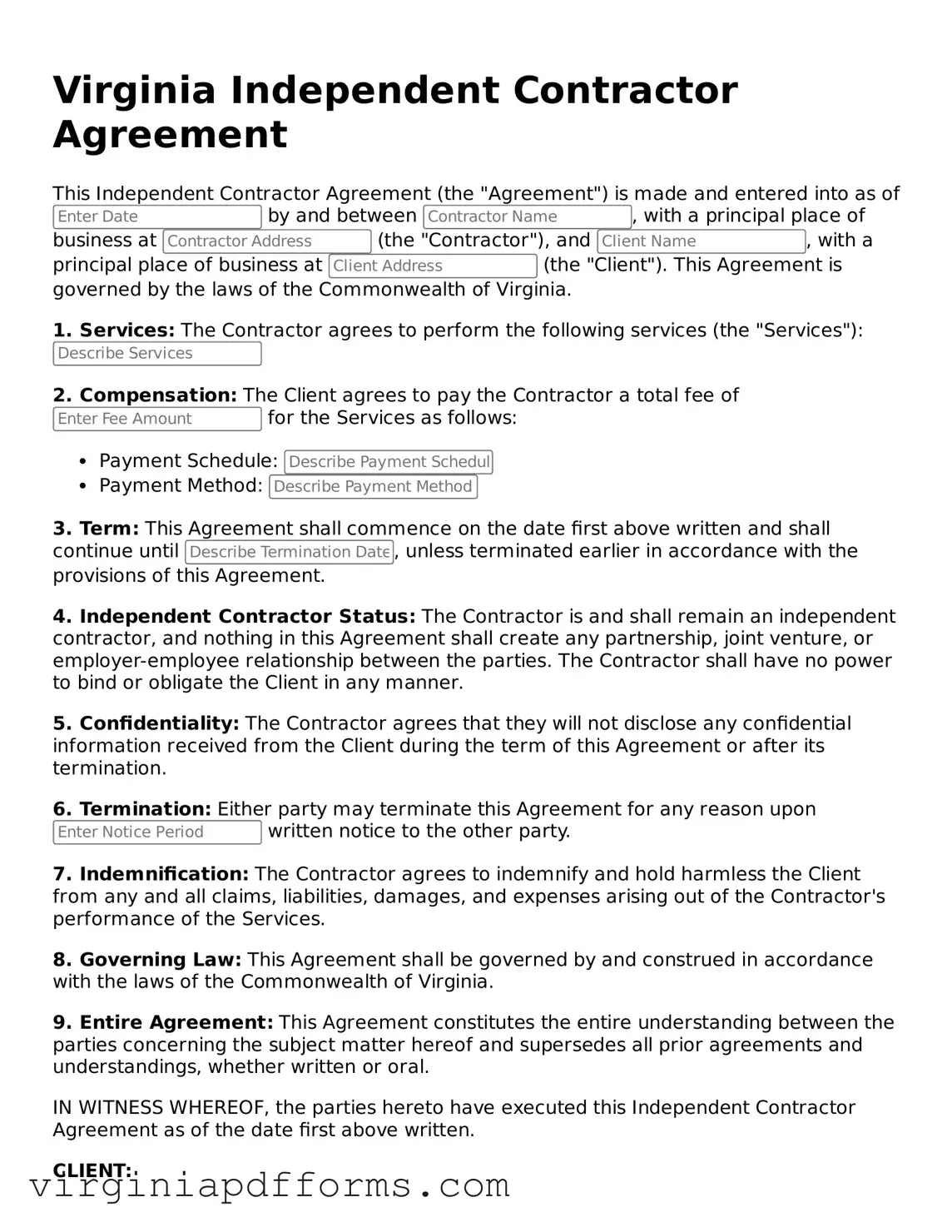Attorney-Approved Virginia Independent Contractor Agreement Document
The Virginia Independent Contractor Agreement is a legal document that outlines the terms and conditions between a business and an independent contractor. This agreement clarifies the nature of the working relationship, ensuring both parties understand their rights and responsibilities. By using this form, businesses can protect their interests while providing contractors with clear expectations for their work.
Access My Document Now

Attorney-Approved Virginia Independent Contractor Agreement Document
Access My Document Now

Access My Document Now
or
Free Independent Contractor Agreement File
Need this form wrapped up fast?
Finish Independent Contractor Agreement online — edit, save, download without effort.